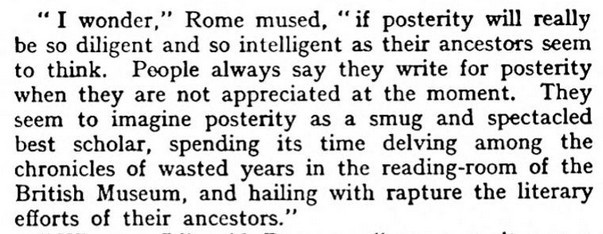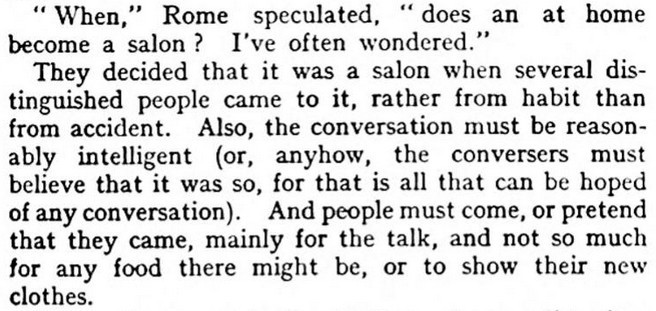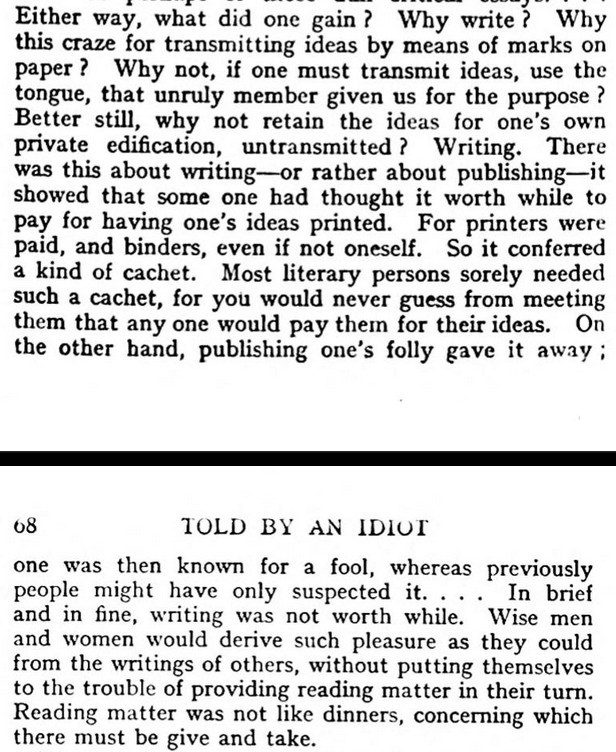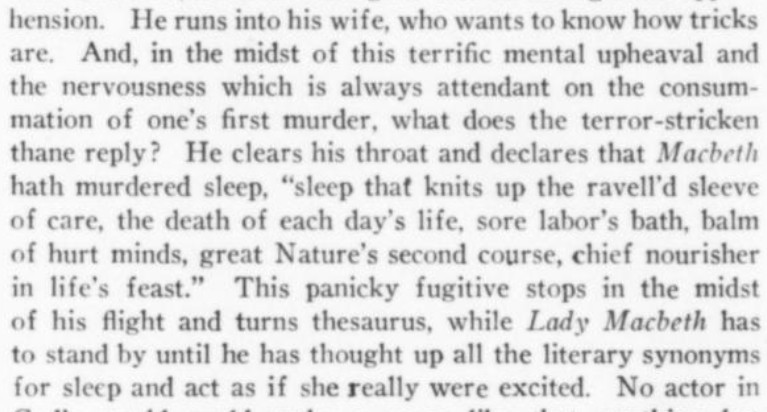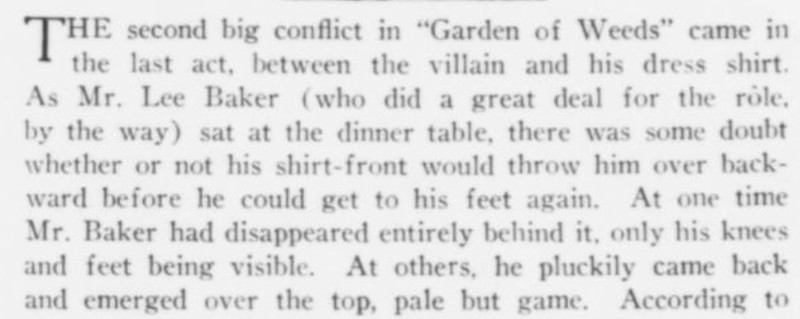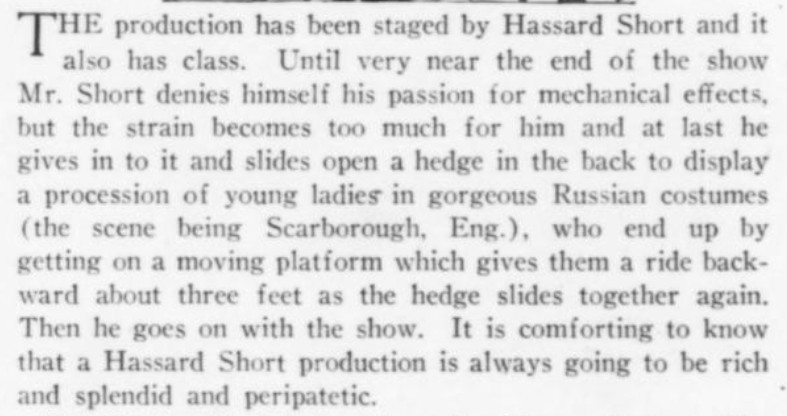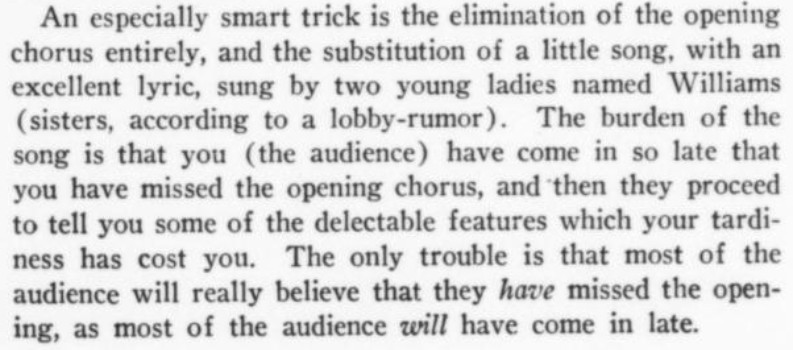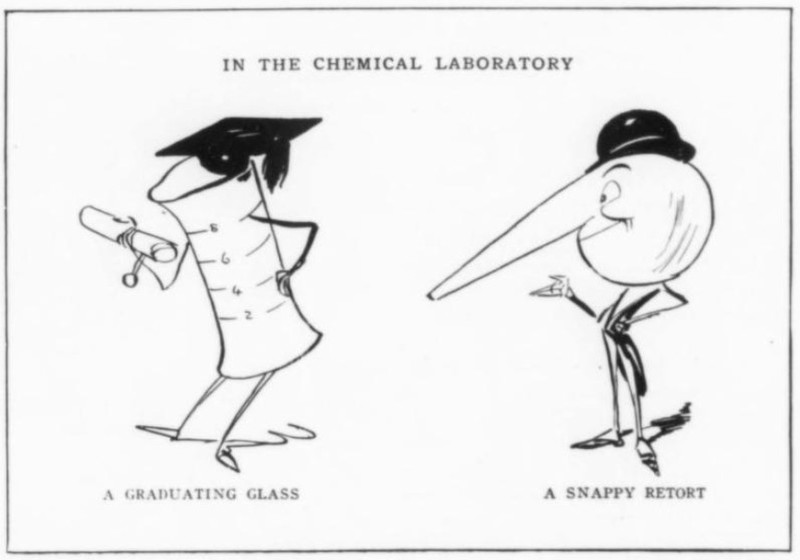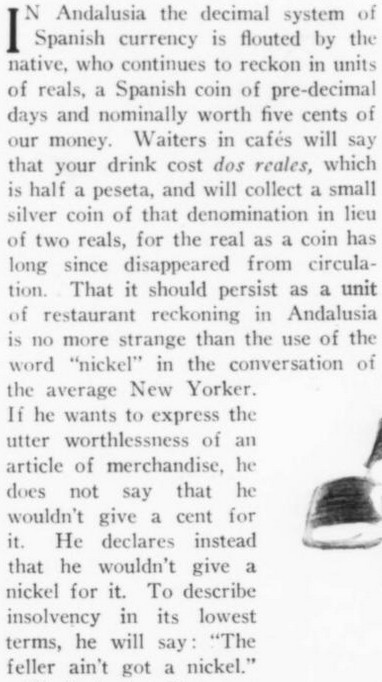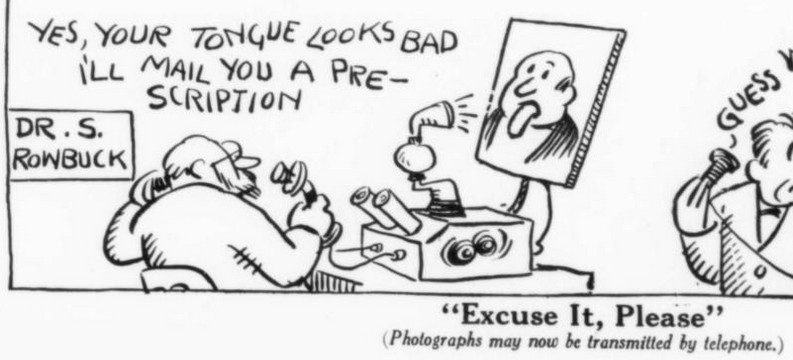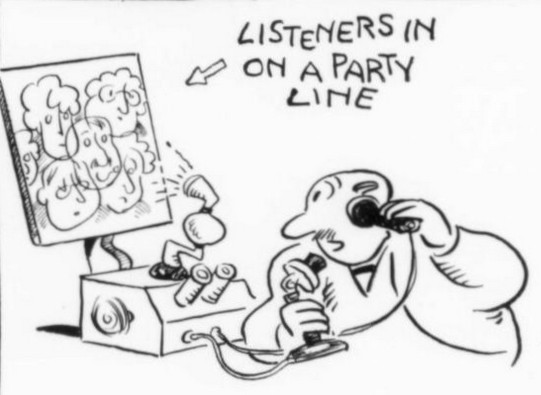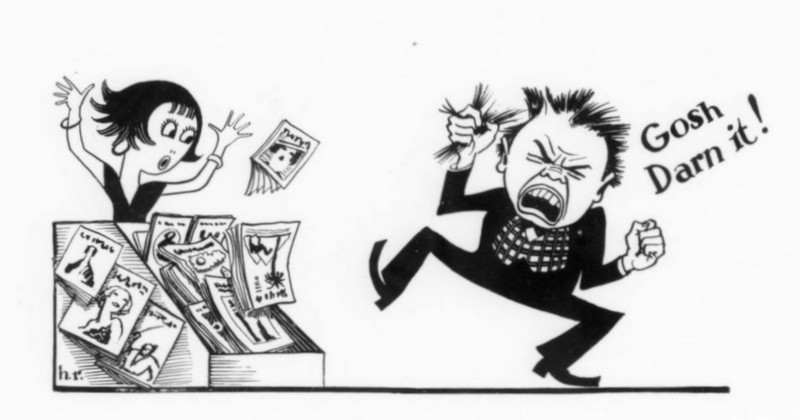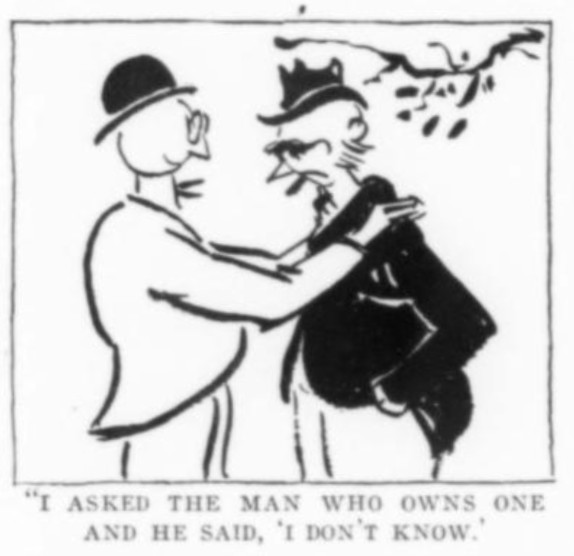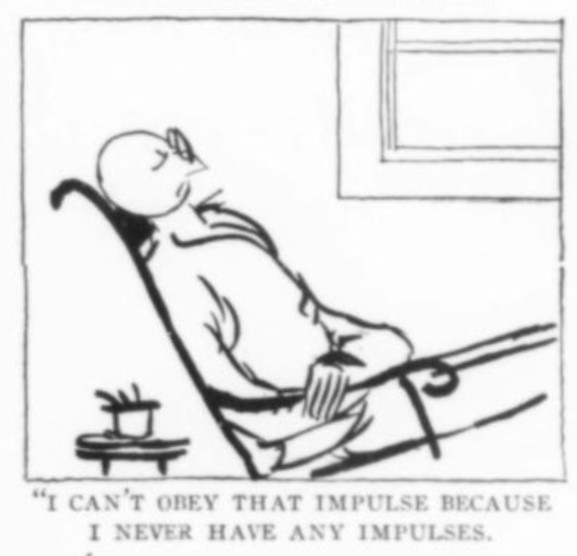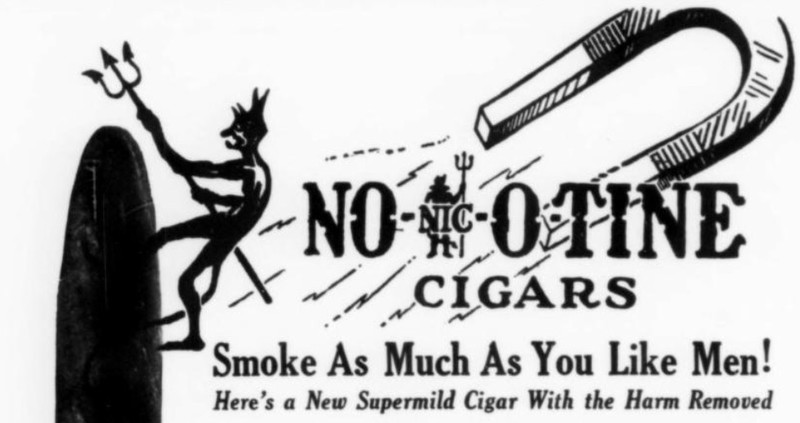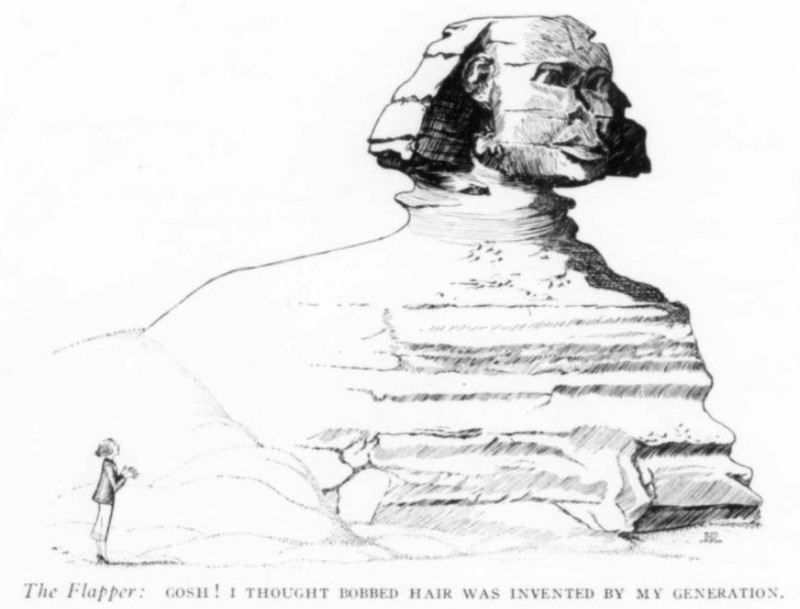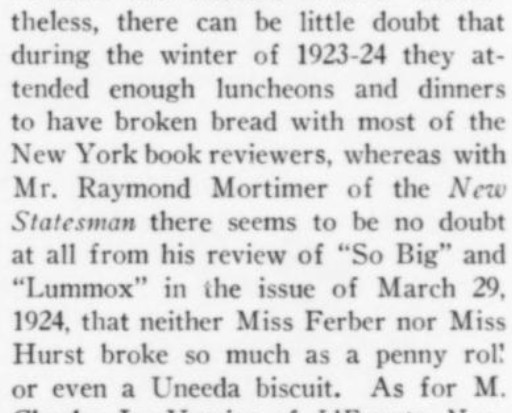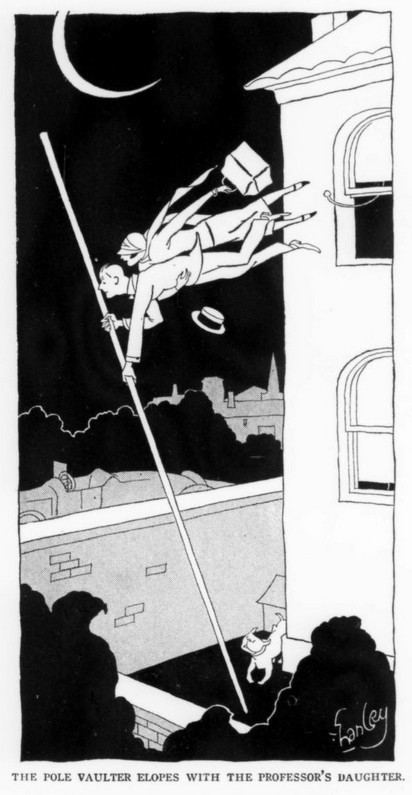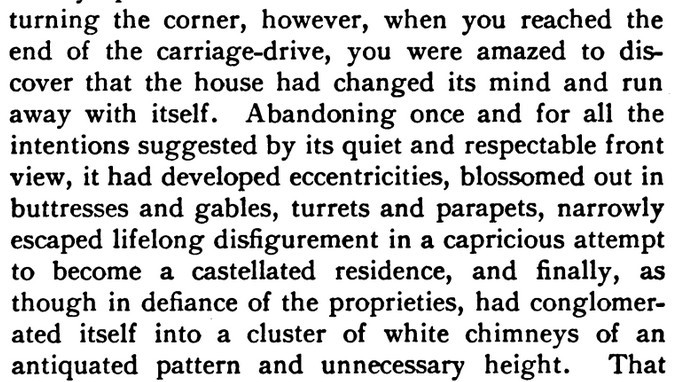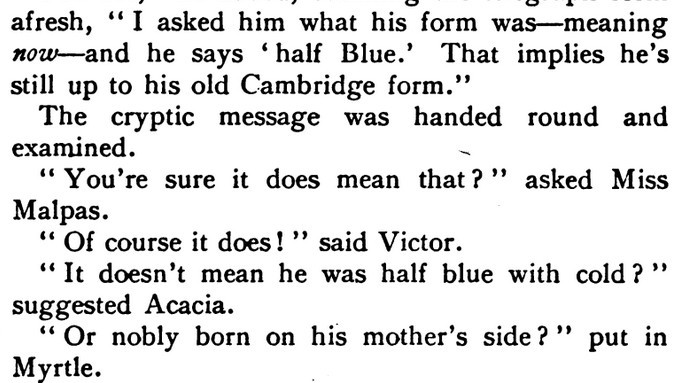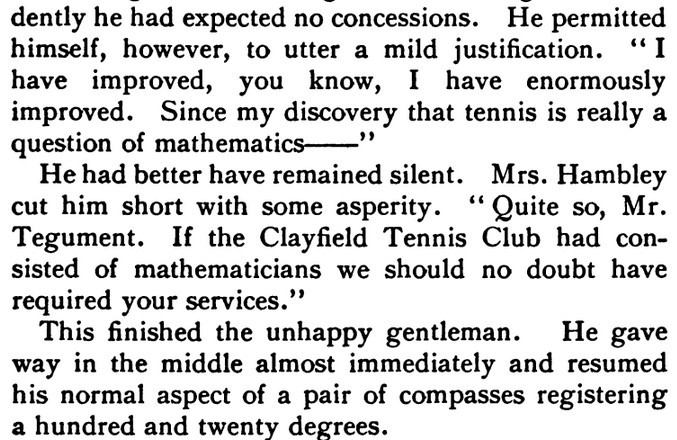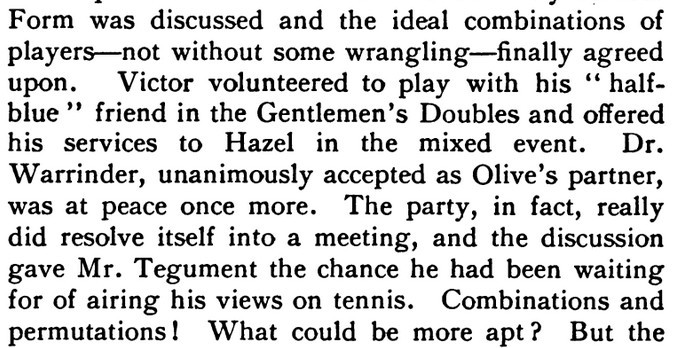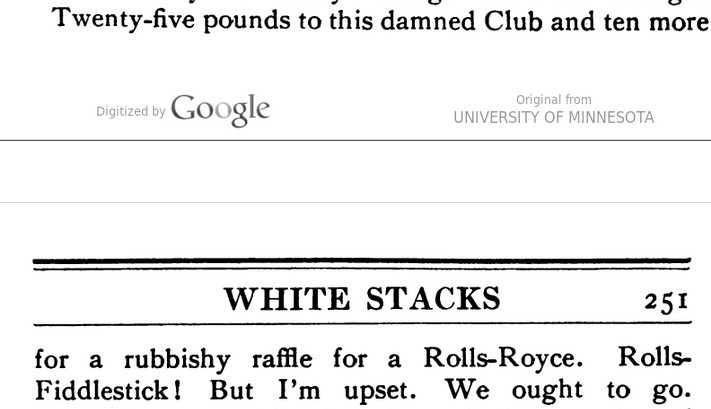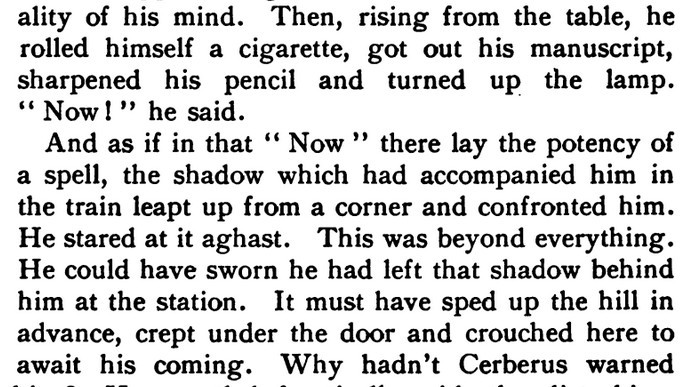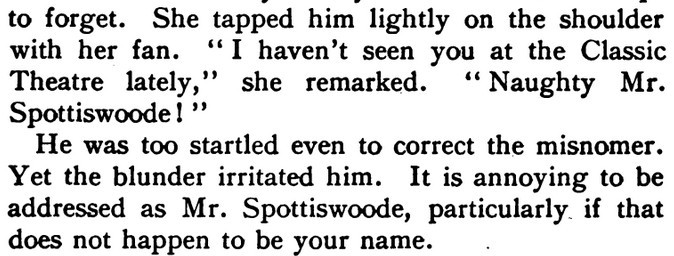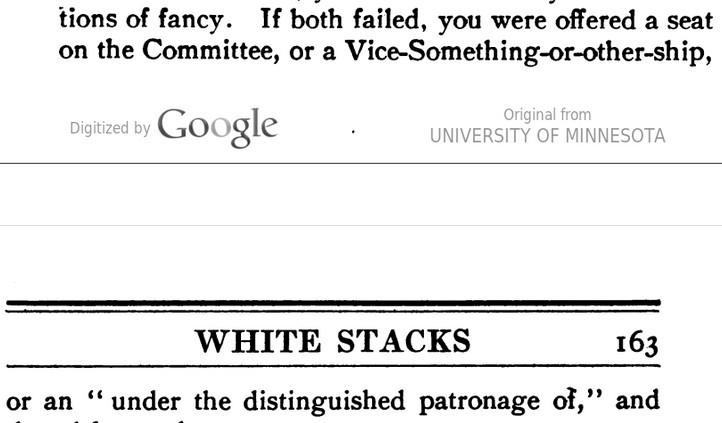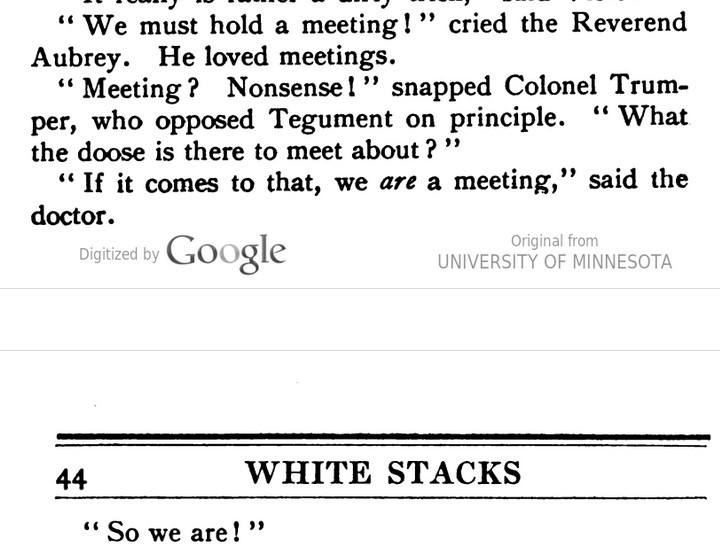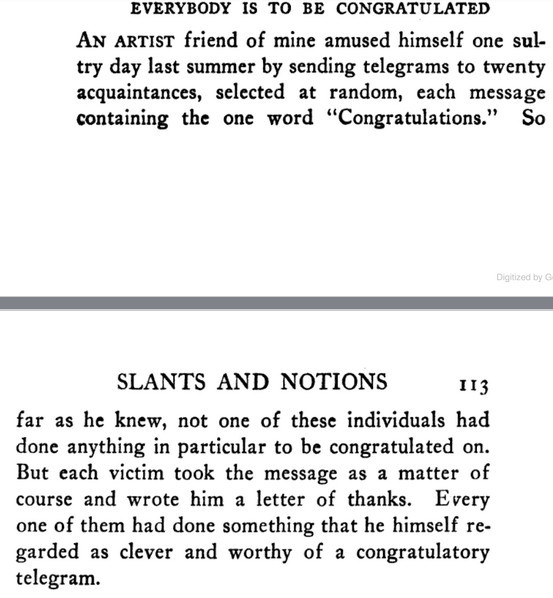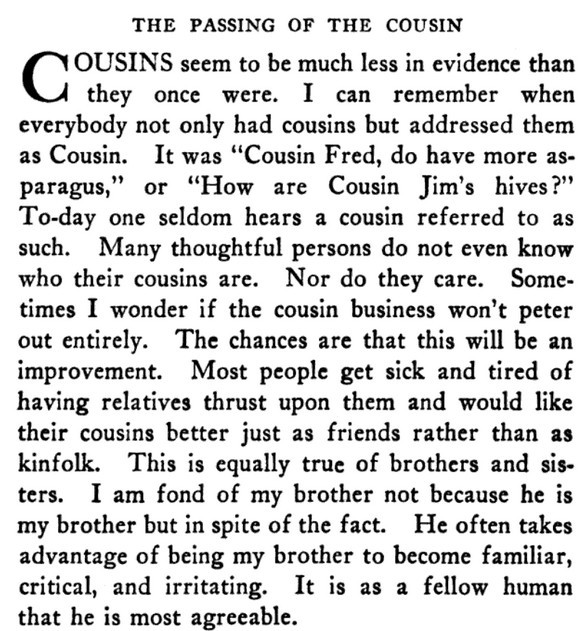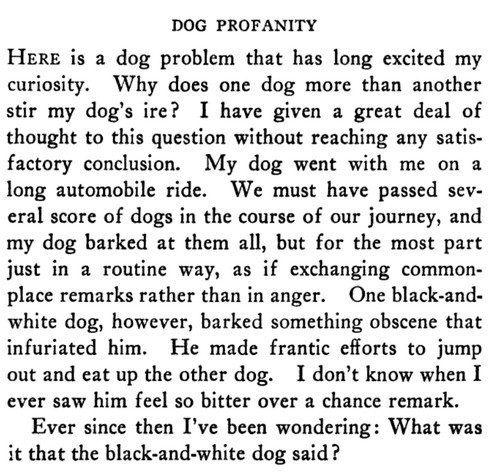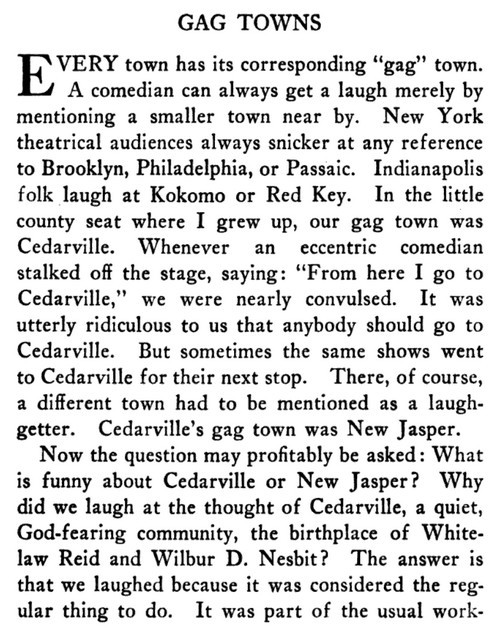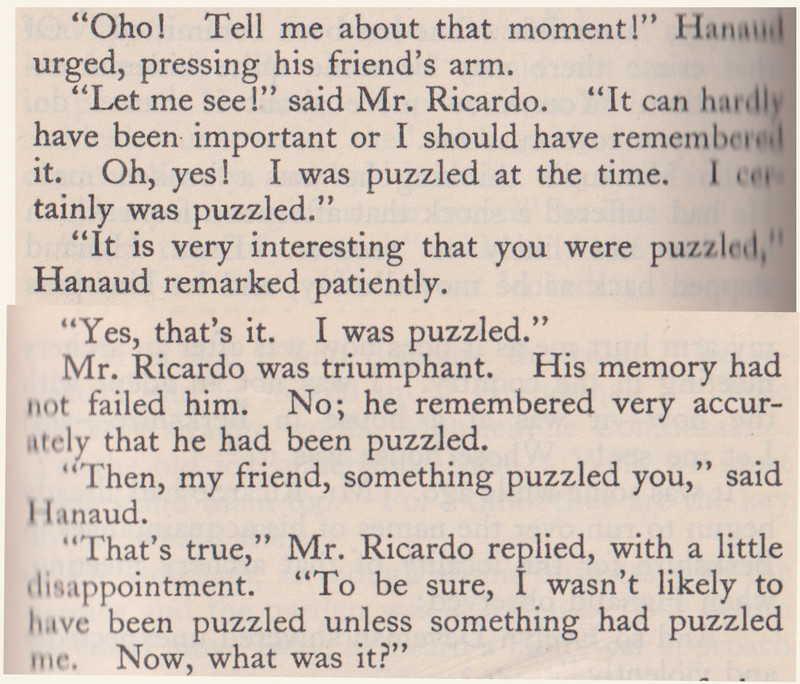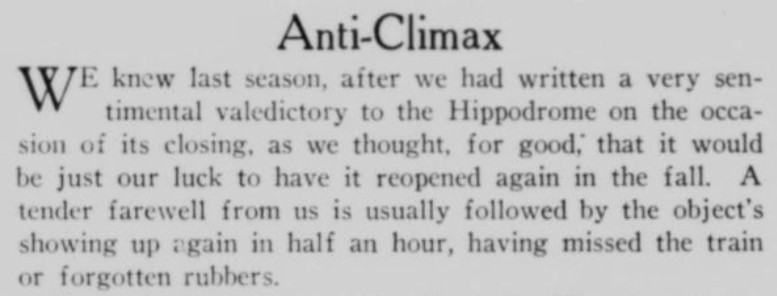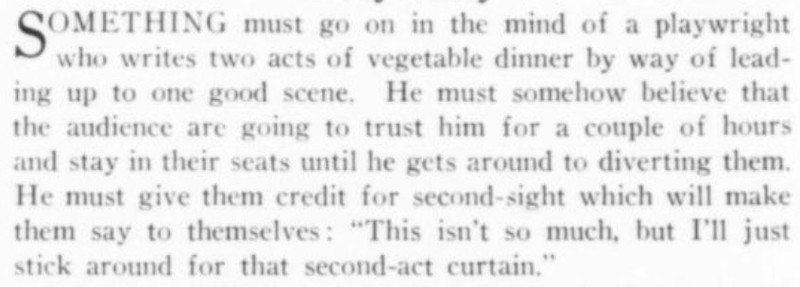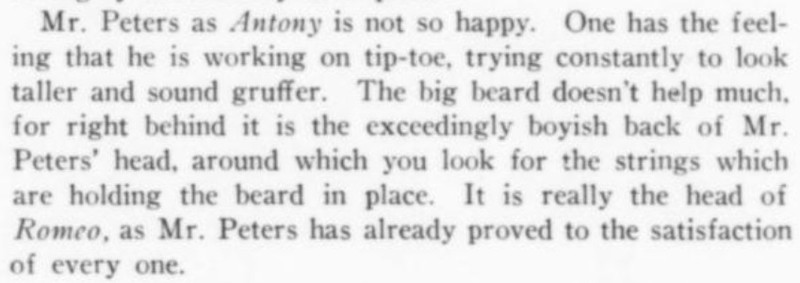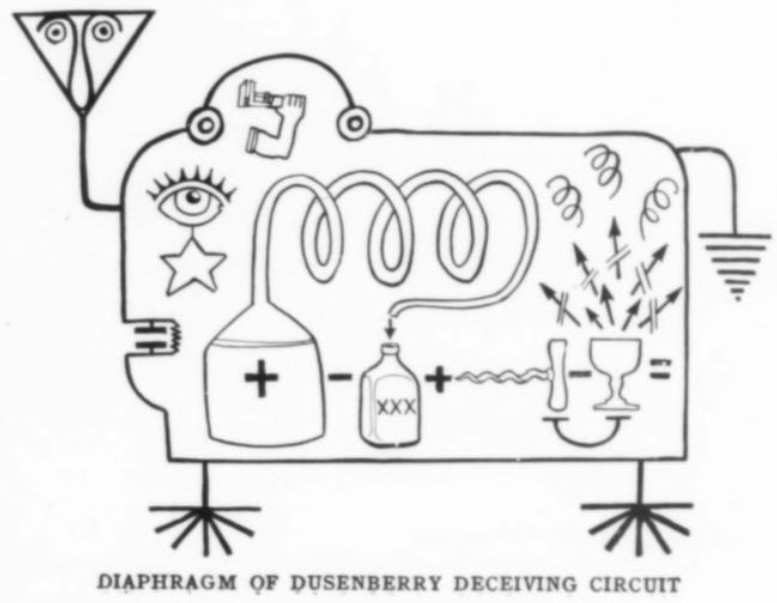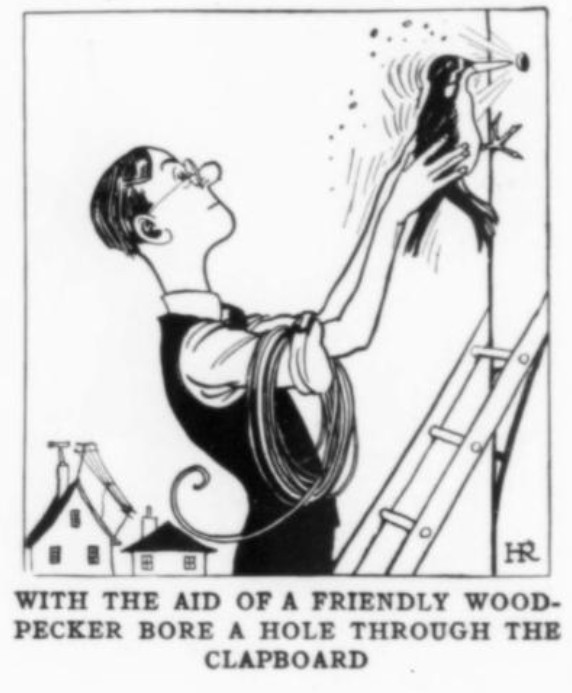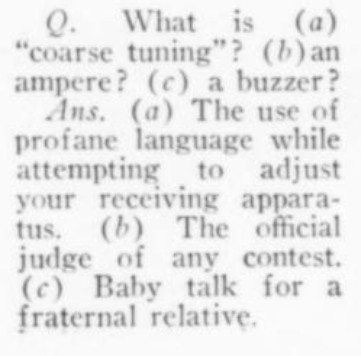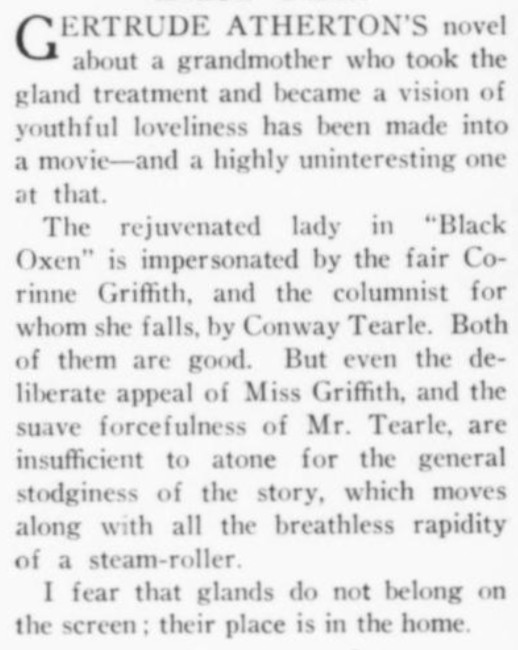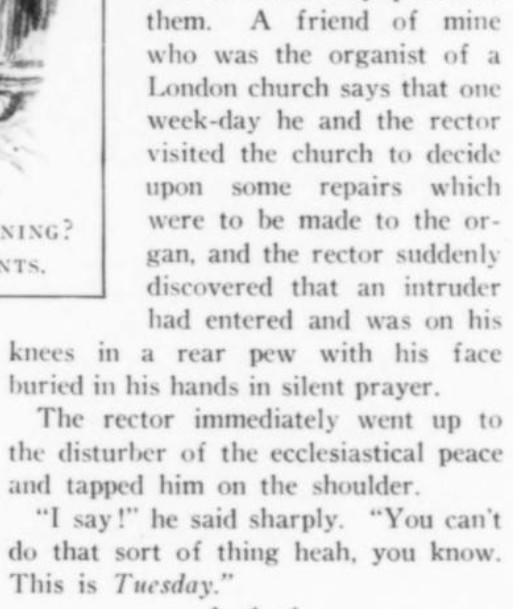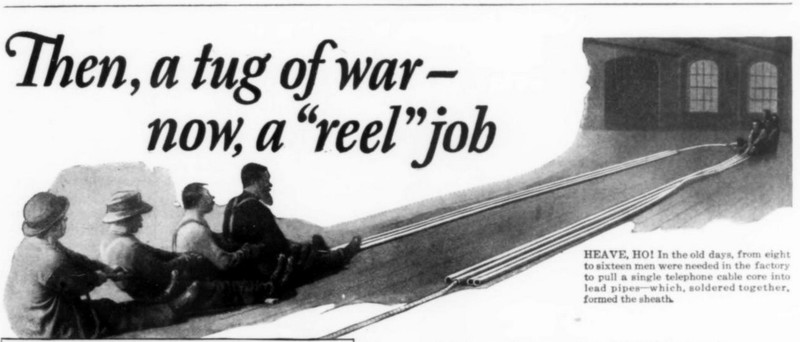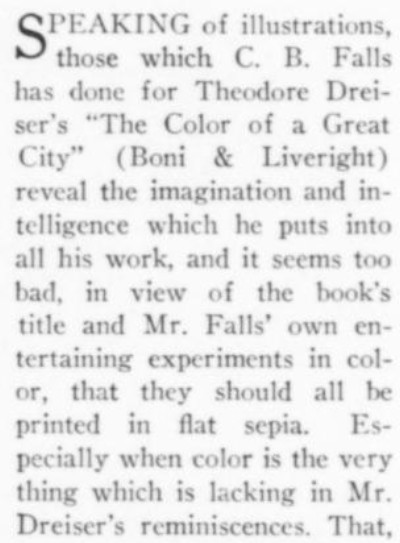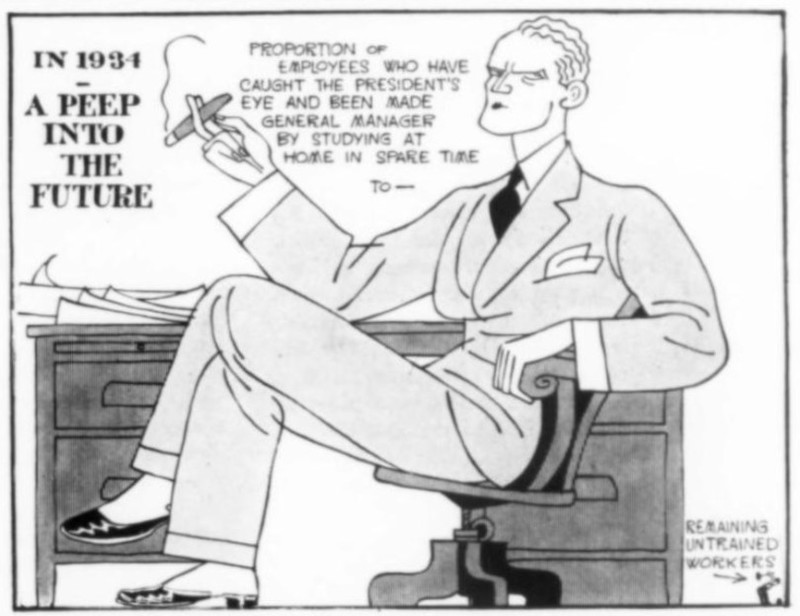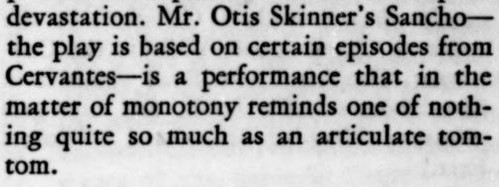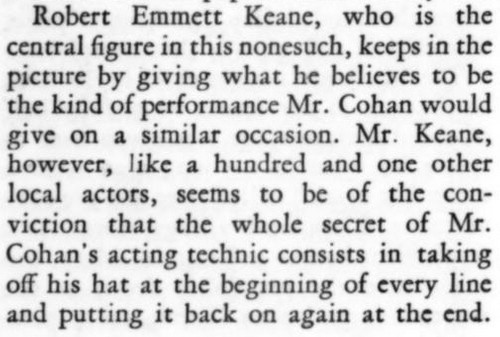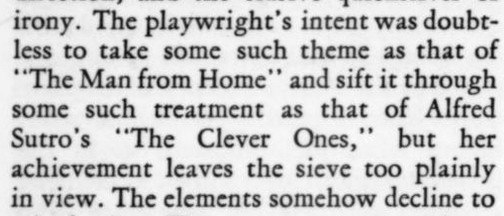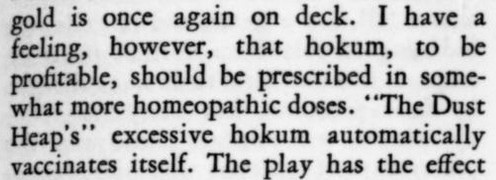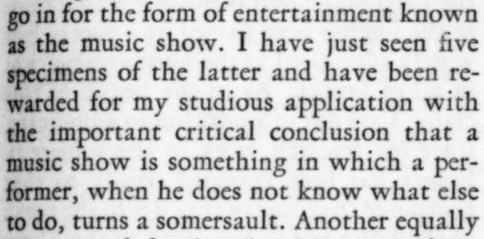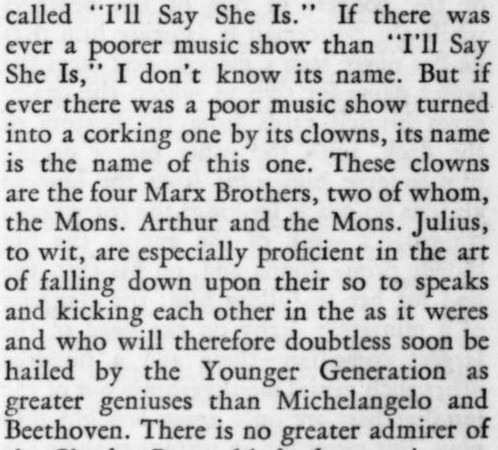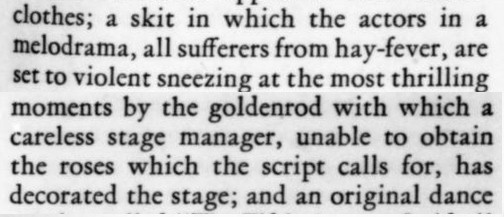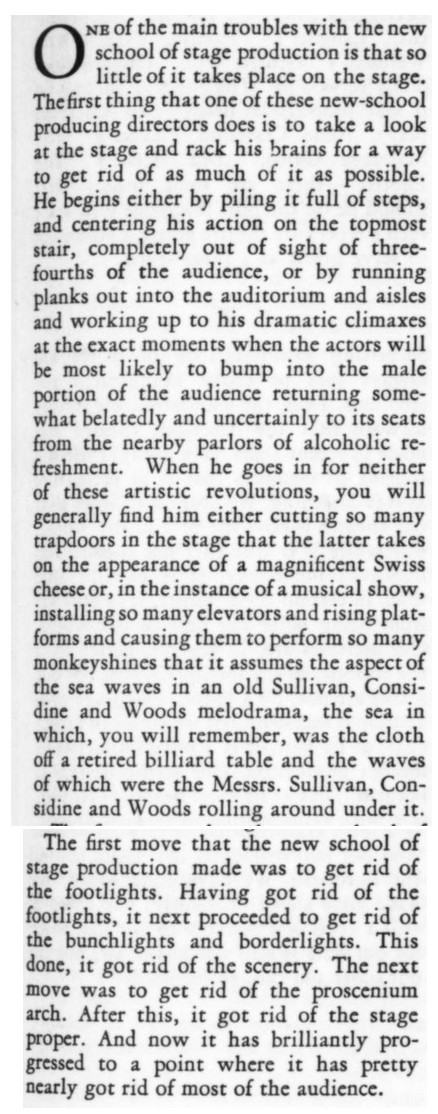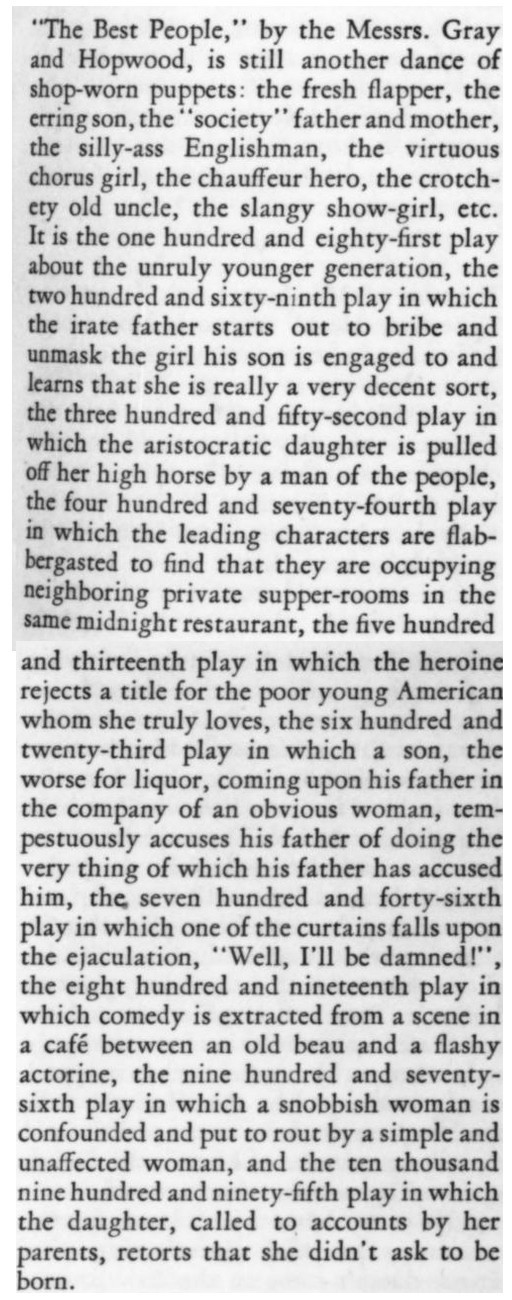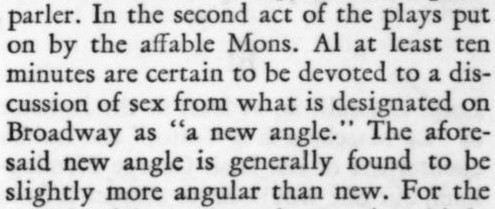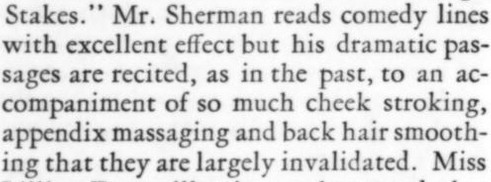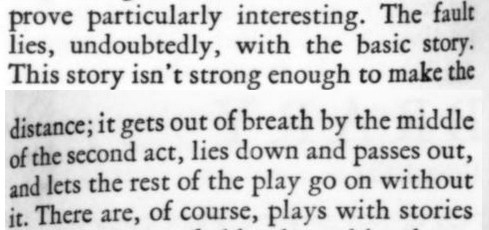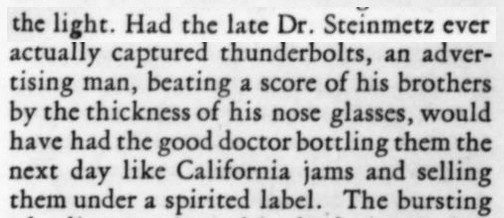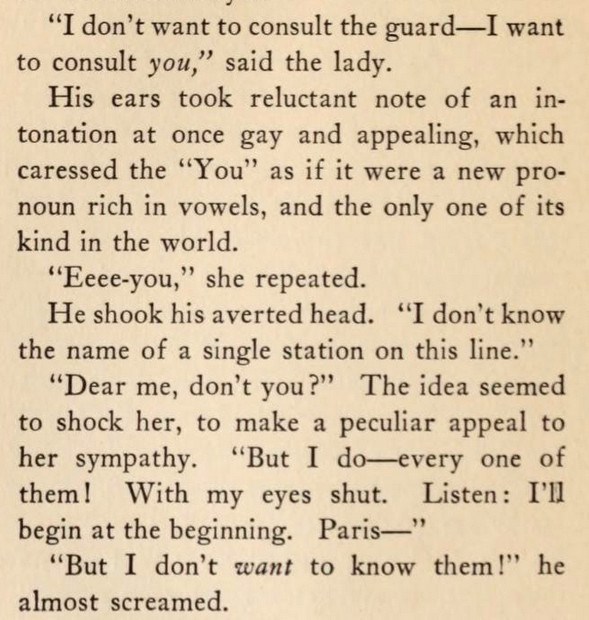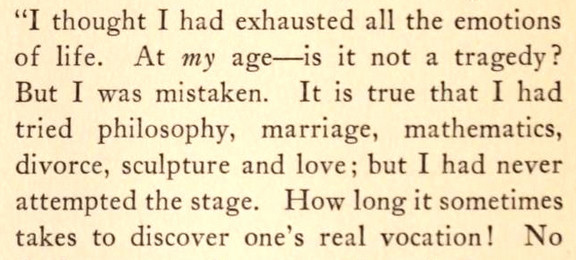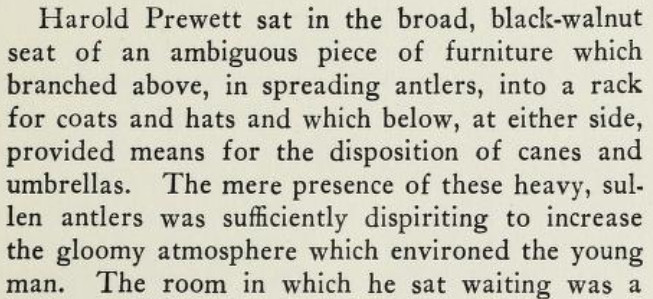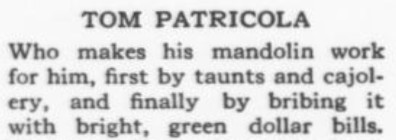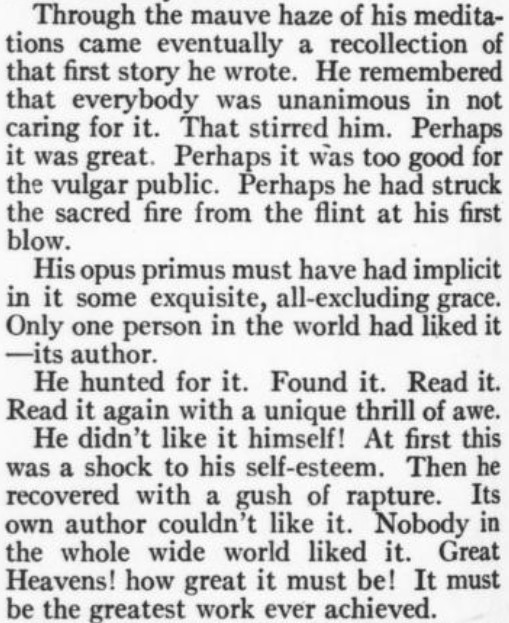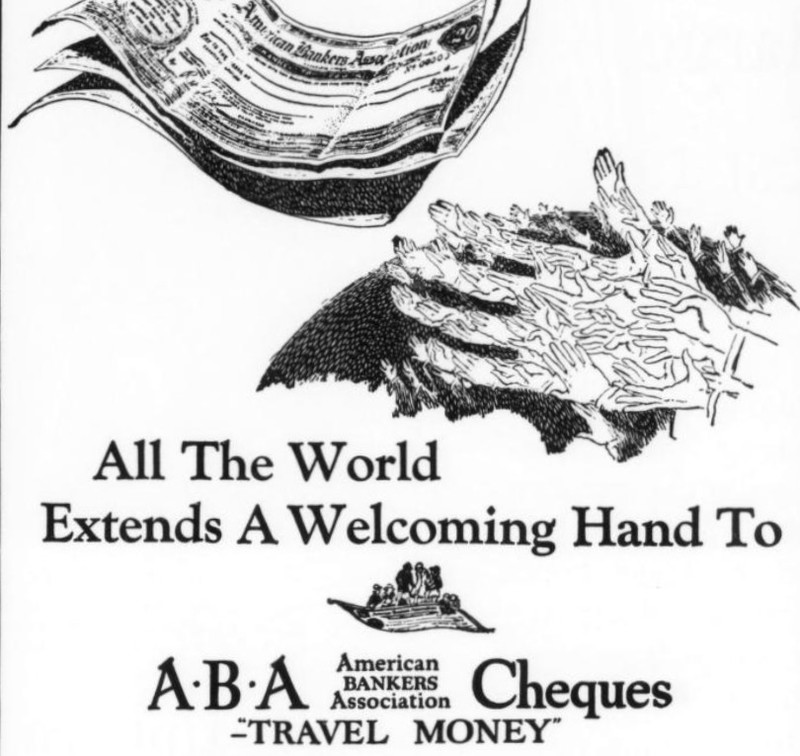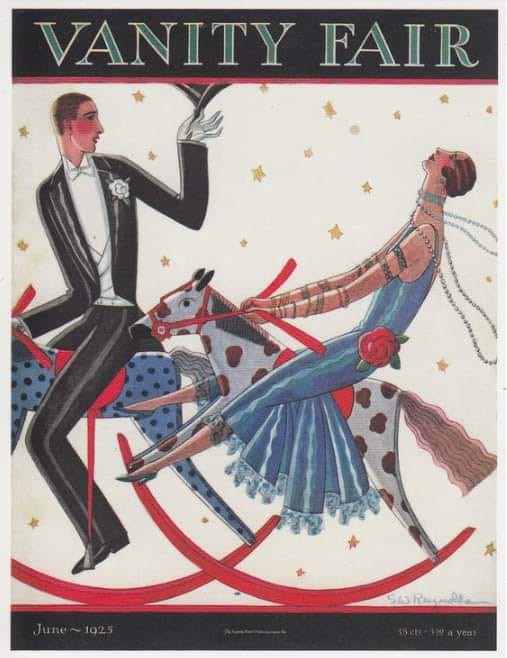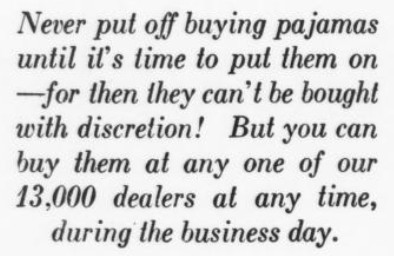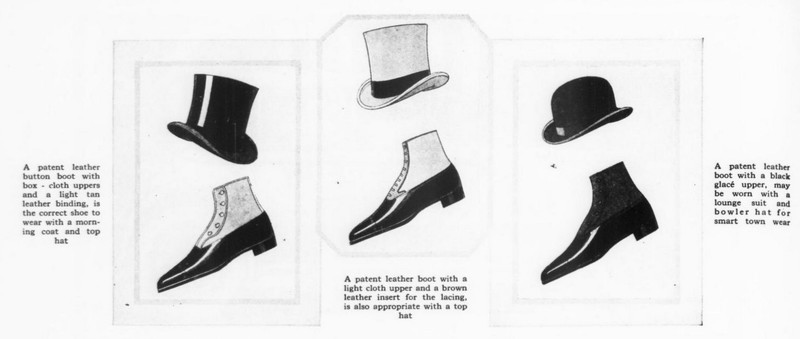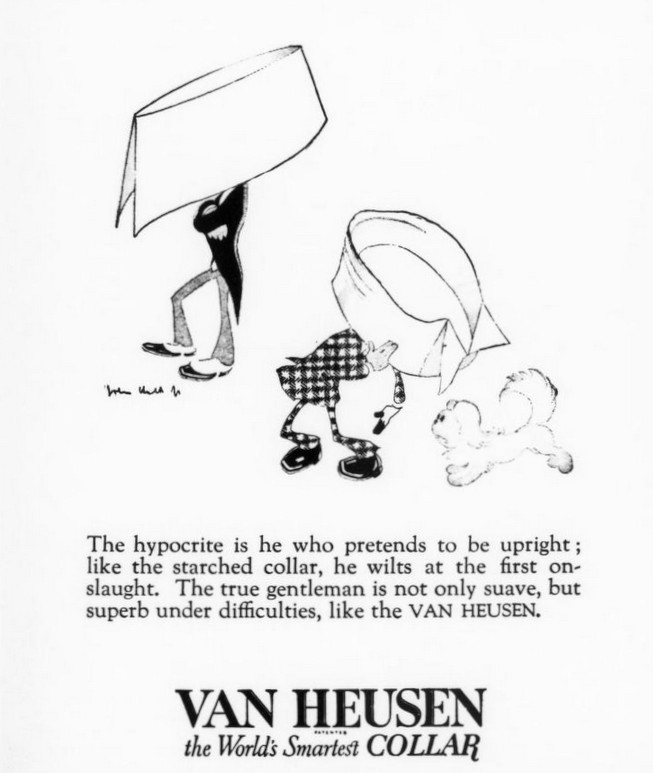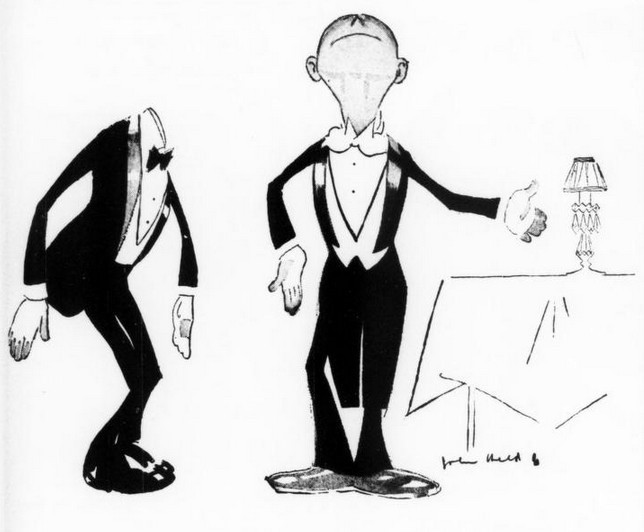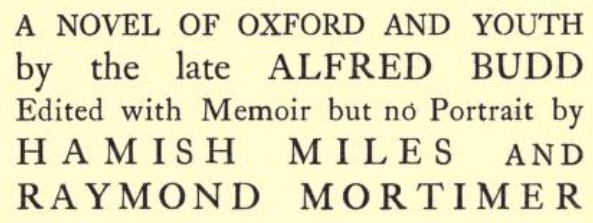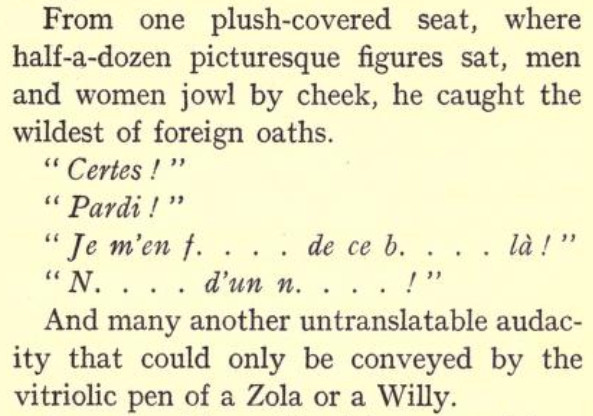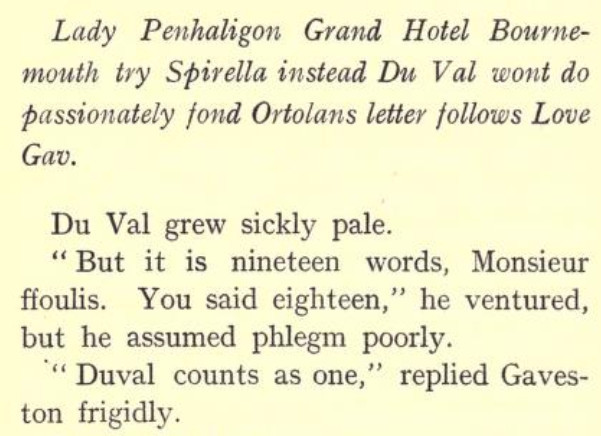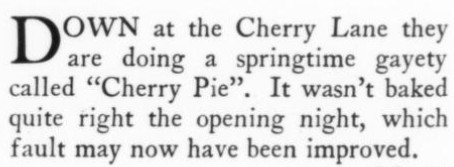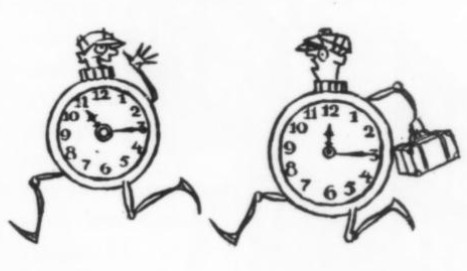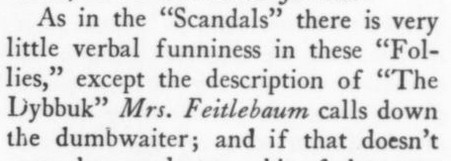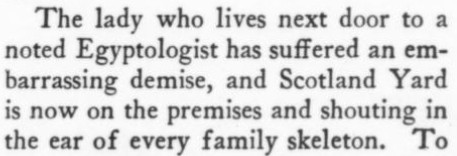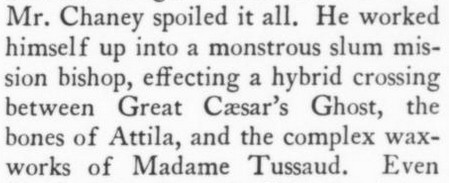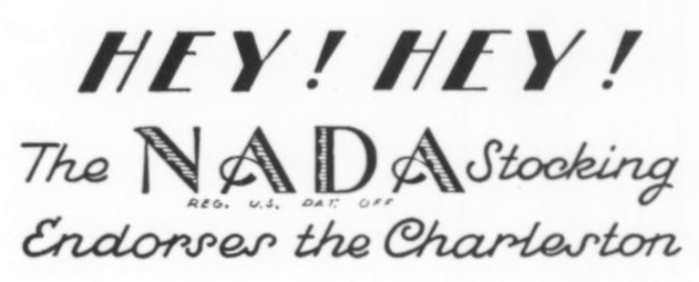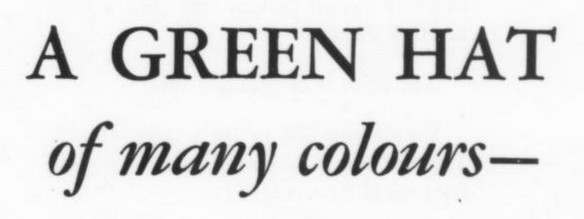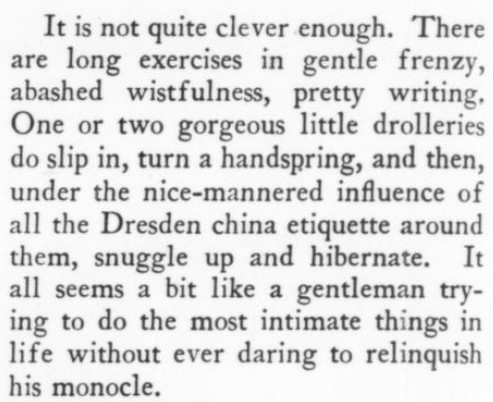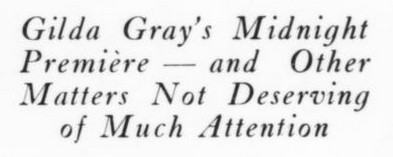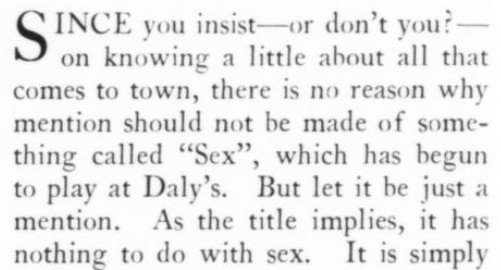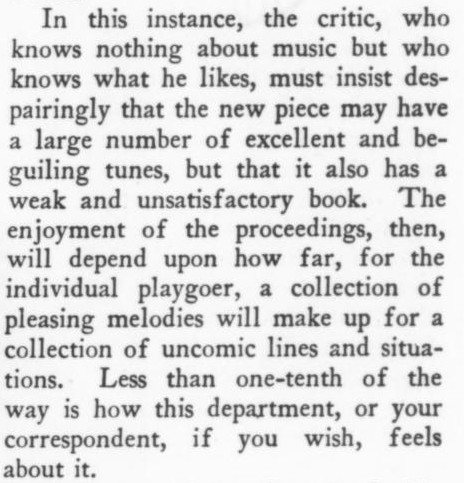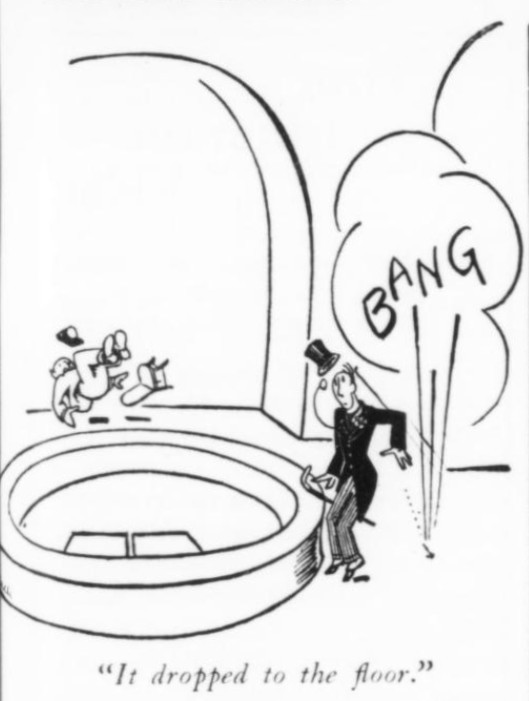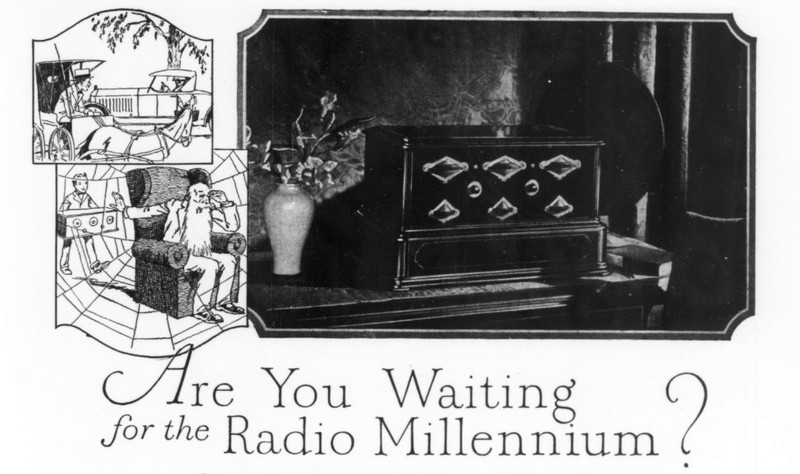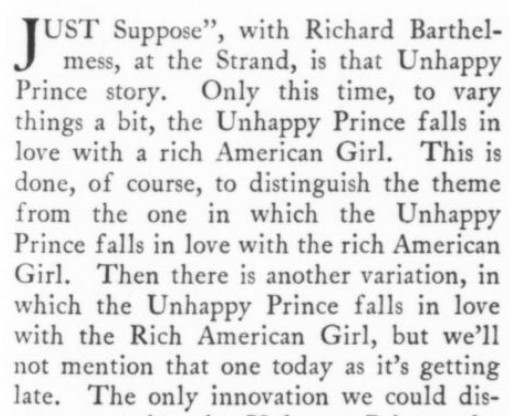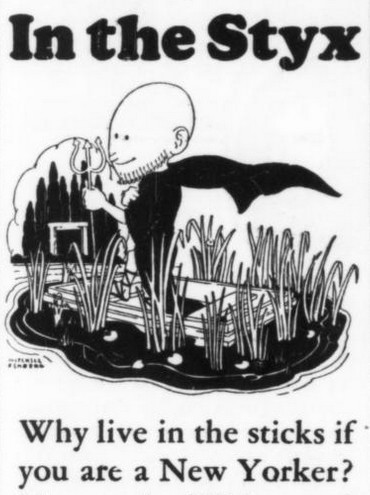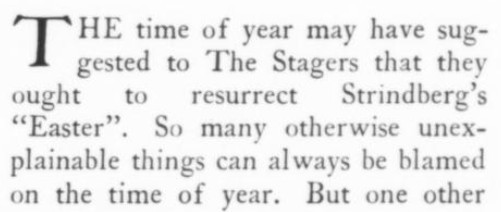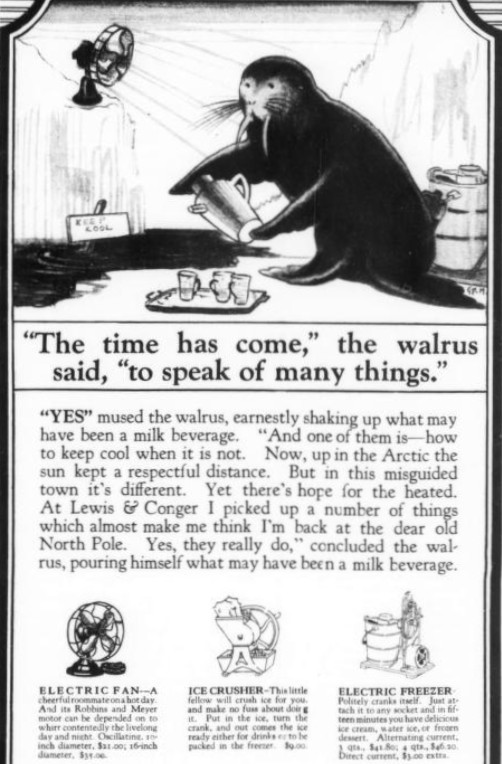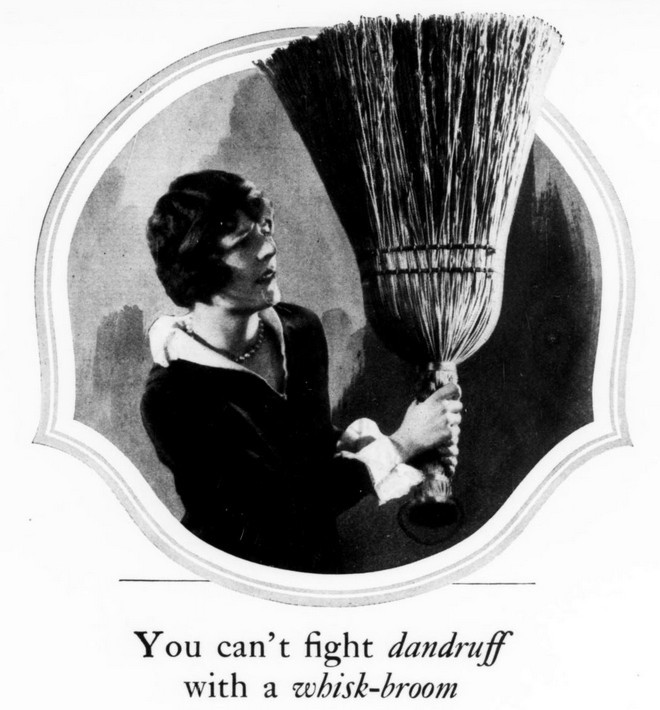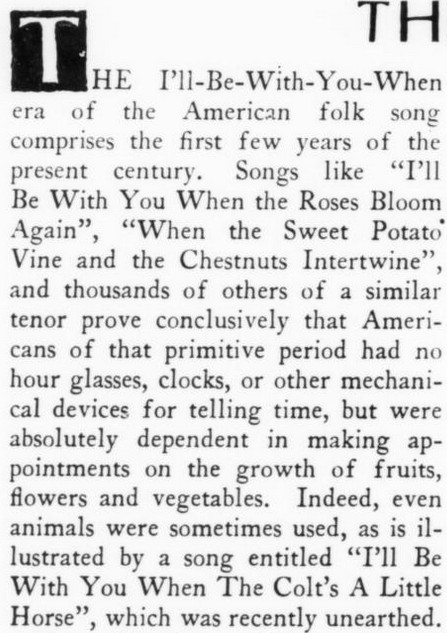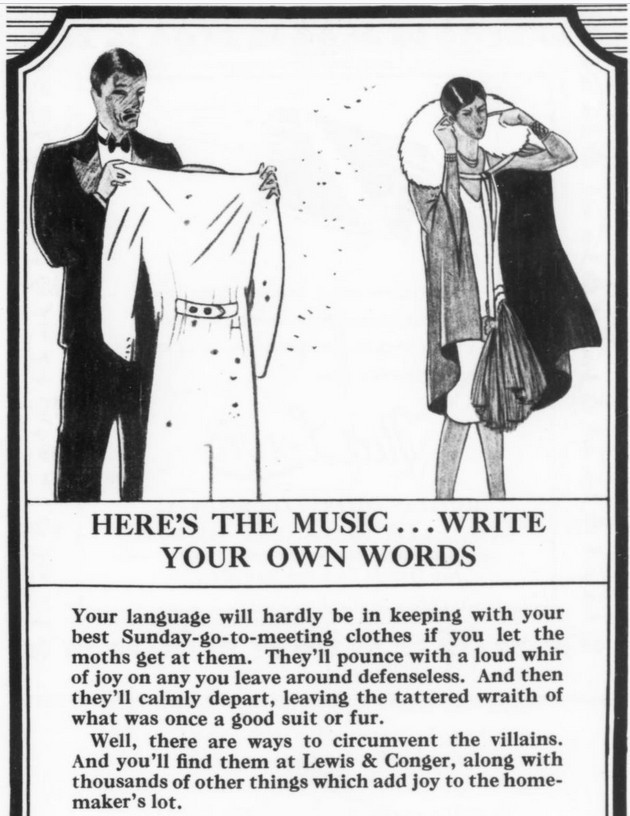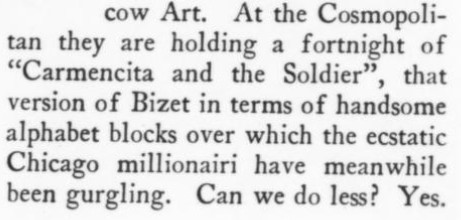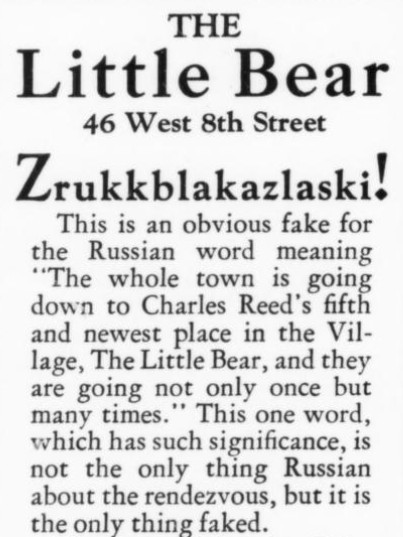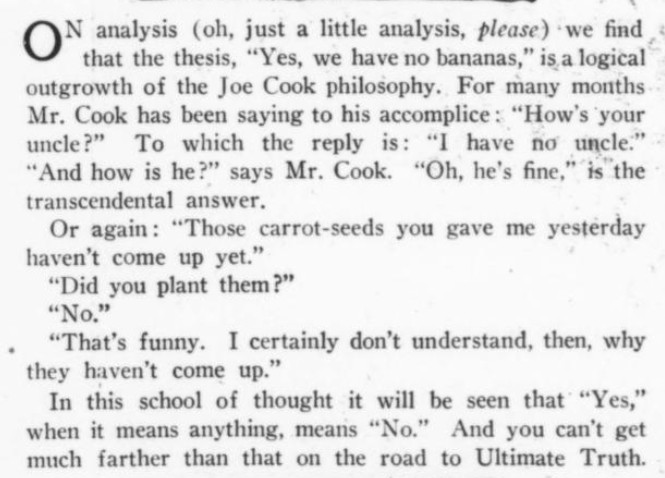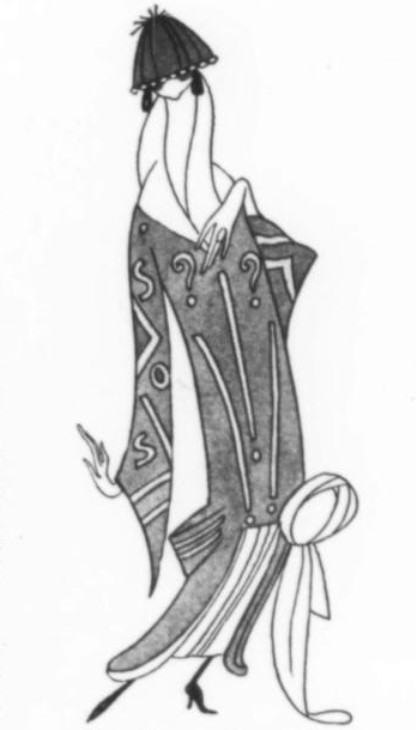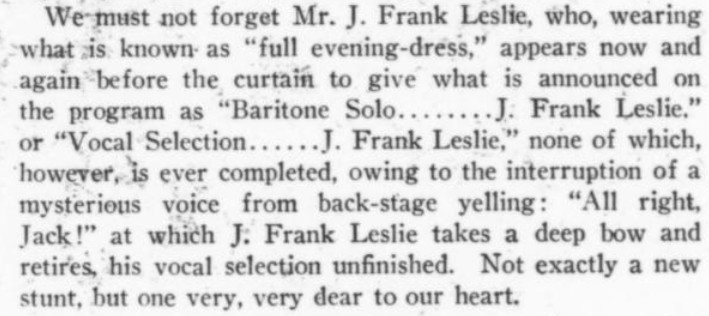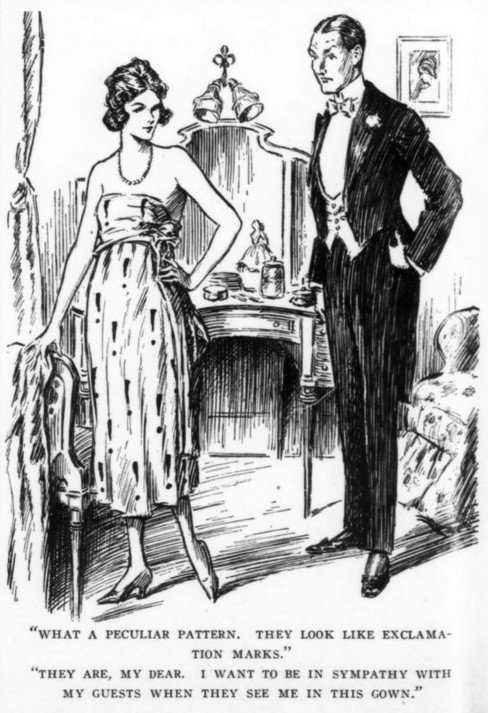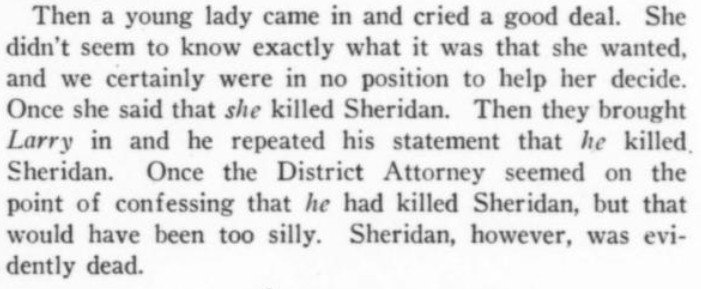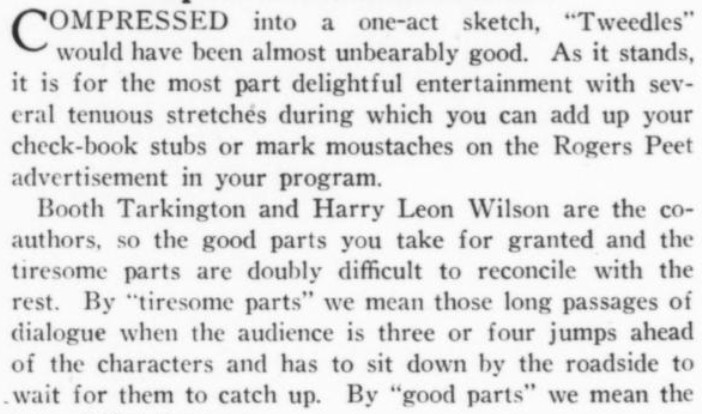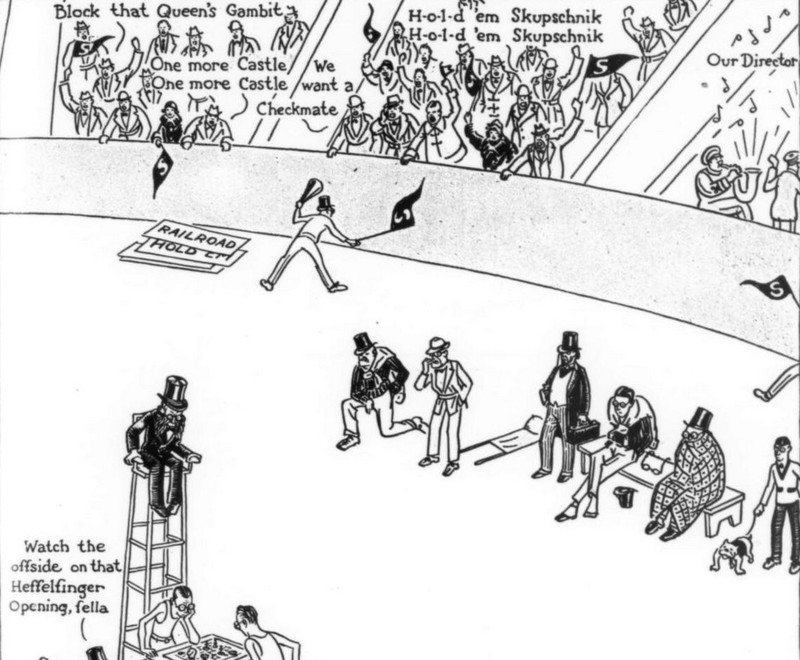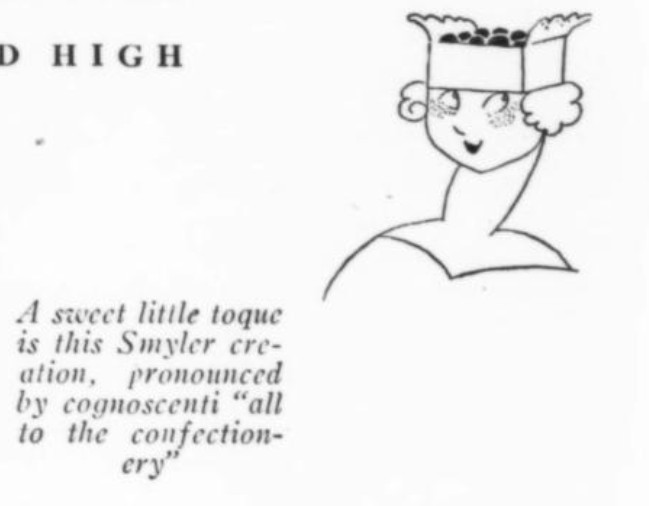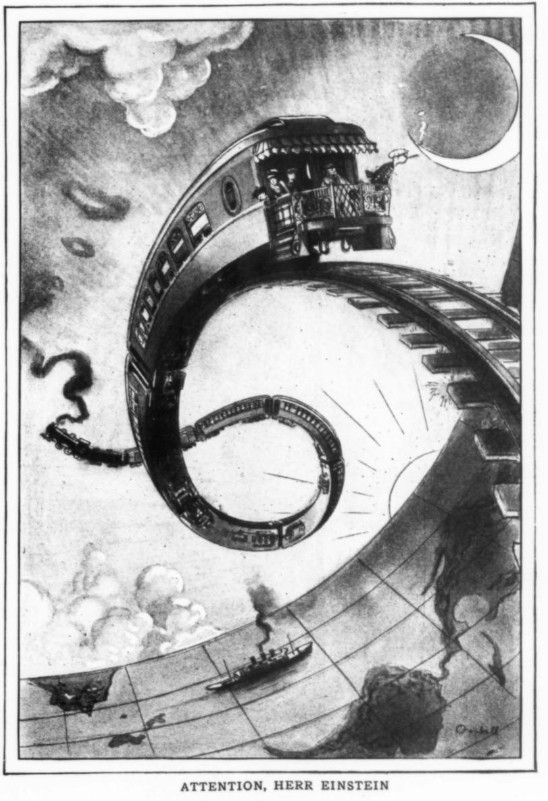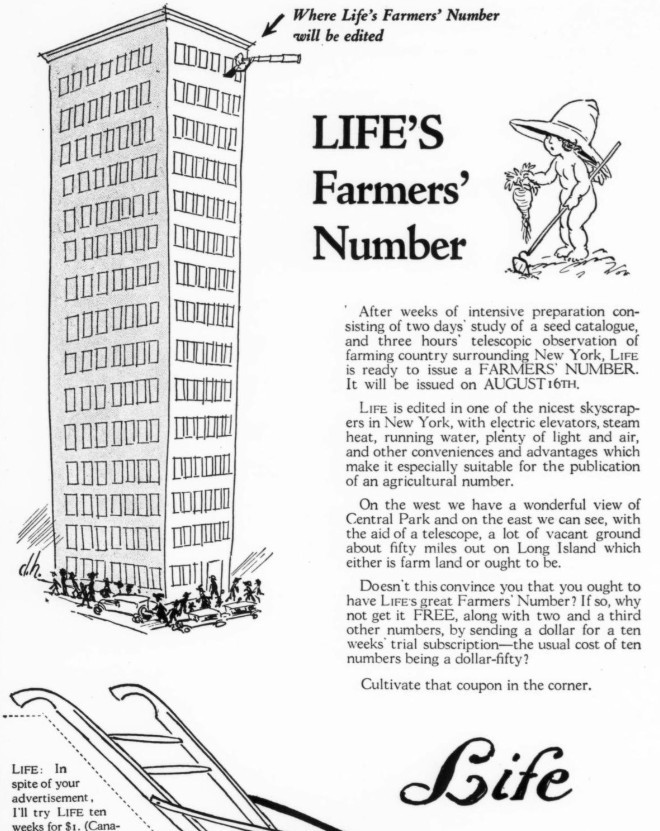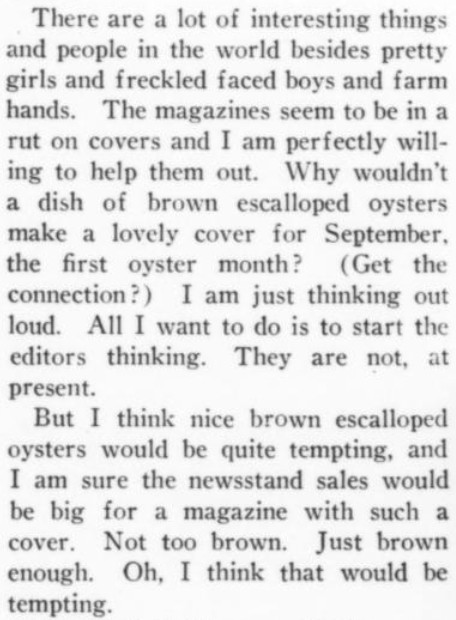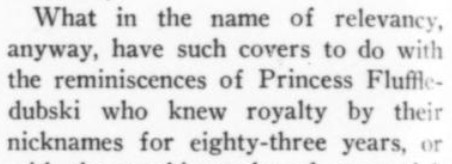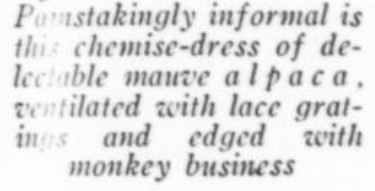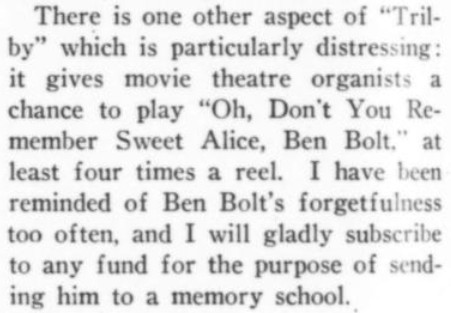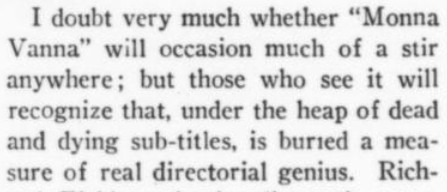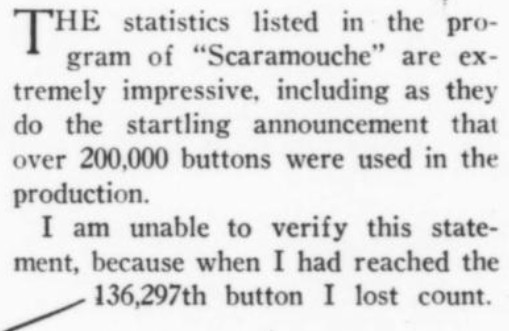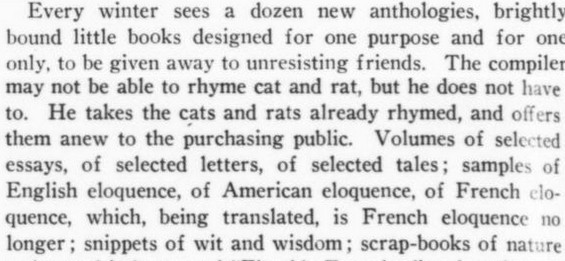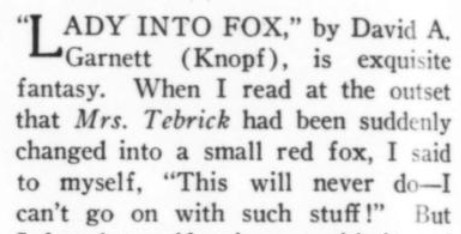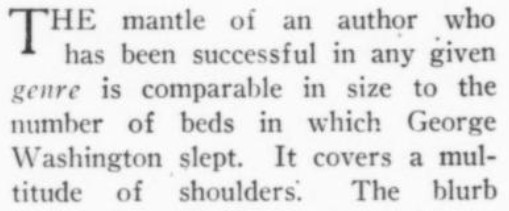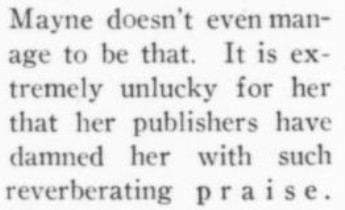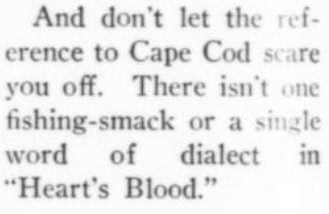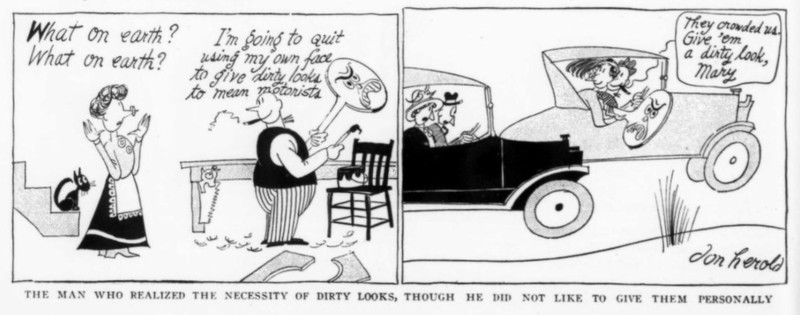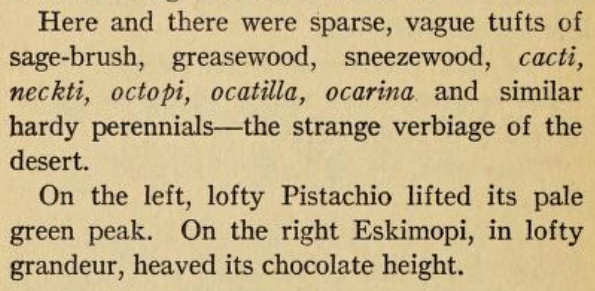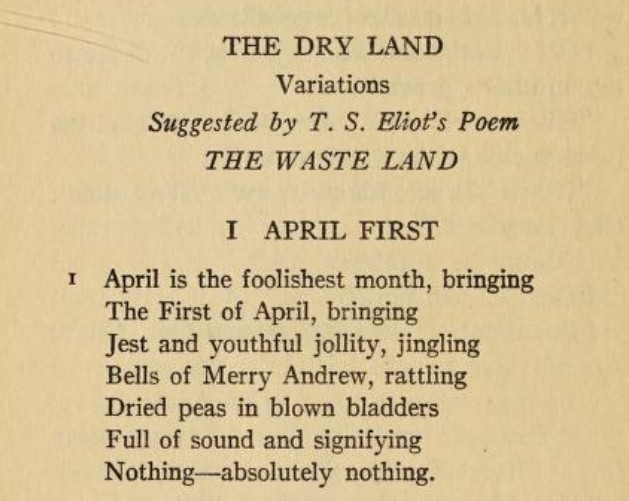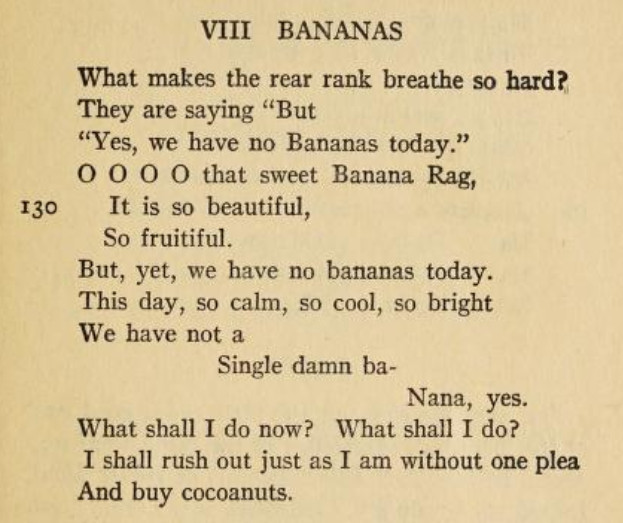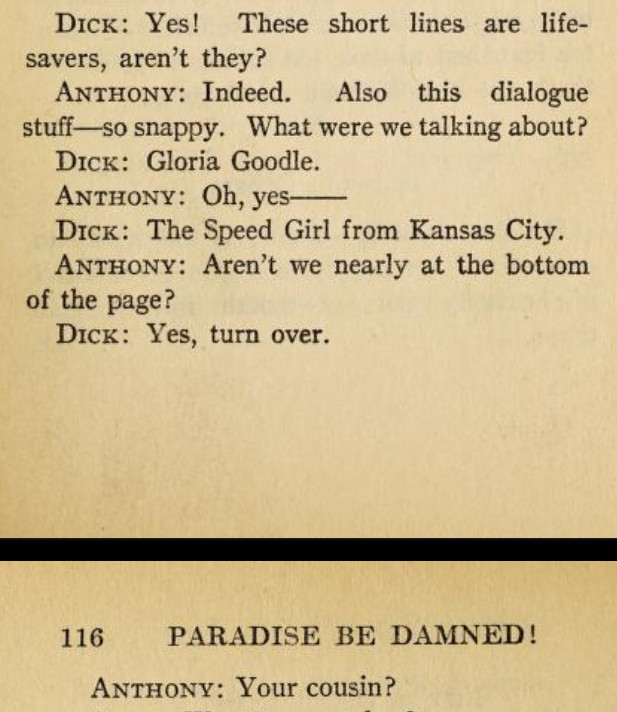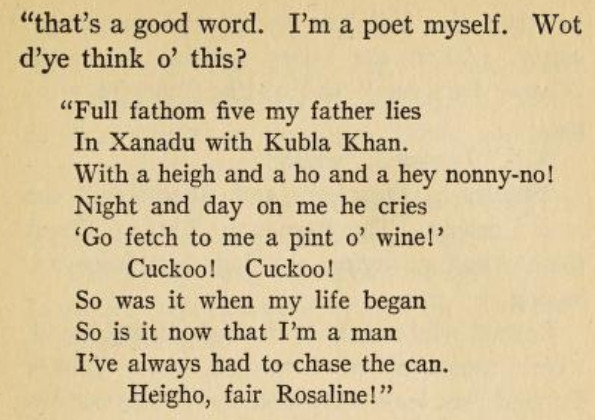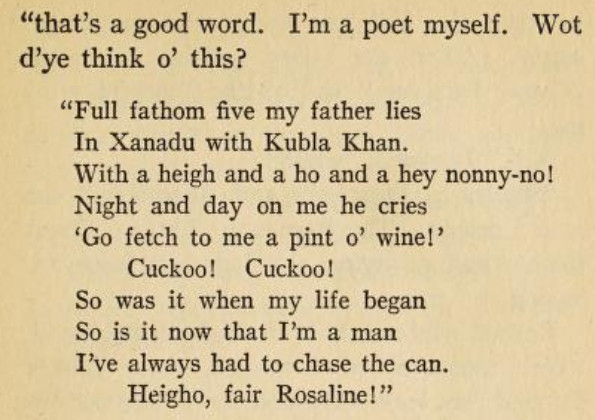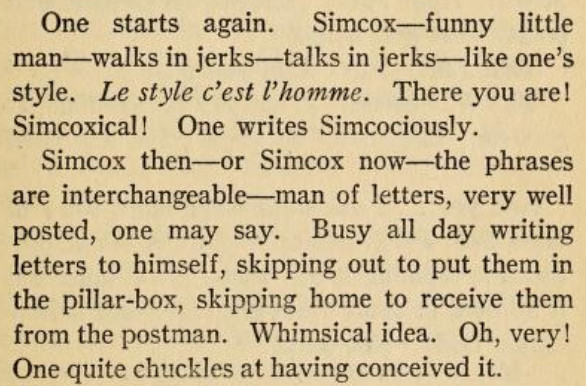



 |
|
|
 |
 |
 |
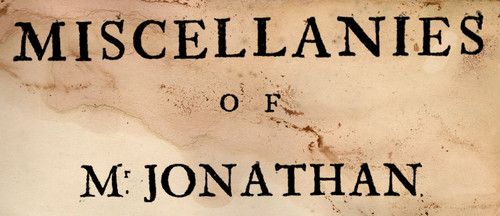
unearths some literary gems.
Fom The Viaduct Murder, by Ronald Knox:
***The house itself may be condemned to the scrap-heap, but you can always make a golf-course out of the Park. Acres, that for centuries have scorned the weight of the plough, have their stubborn glebe broken with the niblick, and over-populated greens recall the softness and the trimness of earlier lawns. Ghosts of an earlier day will walk there, perhaps, but you can always play through them.***(distrust the author whose second paragraph does not come to ground in the particular)***That Mr. Carmichael, the fourth member of the party, had been a don you knew as soon as he opened his mouth. There was that precision in his utterances, that benignity in his eye, that spontaneity in his willingness to impart information, that no other profession breeds. A perpetual fountain of interesting small-talk, he unnerved his audience with a sense of intellectual repletion which was worse than boredom.***“I agree with you about inference,” said Marryatt, disregarding Carmichael’s last remark—one always did disregard Carmichael’s last remark.***Gordon proceeded to look up the trains with an irritating thoroughness, while Reeves danced with impatience—there is no impatience like that engendered by watching another man look up Bradshaw.***“You see, he was always a very reserved gentleman, Mr. Brotherood was; very silent, if you understand what I mean, in conversation.” (Reeves felt that this was probably a characteristic common to most of Mrs. Bramston’s interlocutors.) “Time and again he’s said to me would I mind leaving him now because he’d got a great deal to do.”***October sun glowed temperately over the links, with the air of a kind old gentleman producing sweetmeats unexpectedly.***The 4.50 from Paston Oatvile had to connect with it for the sake of passengers going on to Paston Whitchurch or Binver, and was still wandering up and down in a siding, flirting with a couple of milk-vans and apparently enjoying itself.***If you say, Has the rain stopped, he won’t say Yes, or No; he’ll say, It has, or It hasn’t. The explanation of that is a perfectly simple one: there is no native word for either in Irish, any more than there is in Latin. And that in its turn throws a very important light on the Irish character——”“Oh, go and throw an important light on your grandmother’s ducks,” said Reeves.***“That’s it,” said Carmichael, opening the door, “I remember once in Eastern Roumelia——” but, as he managed to fall down the step into the passage, the reminiscence was fortunately lost.***“There’s a chewing-gum motif running through life at present which is worrying me more than I can say.”***“An hour,” said Gordon, “cannot be properly measured by the movements of a clock, an inanimate thing which registers time but doesn’t feel it.”***“Do you realize that, quite possibly, Davenant may have stood behind that hole in the wall and heard us coming solemnly to the conclusion that he didn’t exist? That he never had existed, except as a sort of spiritual projection of old Brotherhood, and now, consequently, he had ceased to exist?”***“Carmichael will have it that Davenant is a mode of Brotherhood. Like the materialist or the idealist he is stultifying experience for the sake of a formula....Brotherhood, representing Matter, leaves off where Davenant, representing Spirit, begins. Carmichael, representing the modern mind, finds this an excellent reason for supposing that they are really, somehow, the same thing. The materialist sees Brotherhood everywhere, the Idealist sees Davenant everywhere.”***“There’s one other question I want to ask you, a rather odd one. Have you any reason to think that Davenant was carrying a golf-ball in his pocket when he came up on Tuesday afternoon?”“He might be, of course. But he would hardly have mentioned it, would he?”***"I should be careful how you accuse people of theft merely because their pipes are newly cleaned."***Bonuses:two characters named Masterman referred to collectively as "Mastermen"exclamation points referred to as "shriek-marks."
|

 |
|
|
 |
 |
 |

unearths some literary gems.
***
Mr. Ricardo, indeed, embroidered and developed and expounded his image of an opal to a degree of tediousness which even in him was remarkable.
***
"She romped without romping."
***
Mr. Ricardo had perused every word of this letter before he realized that it had provoked in him no uncanny sensations whatsoever.... It is true that the ink was purple instead of black; and for a moment or two Mr. Ricardo sought an unworthy consolation in that difference.
***
Mr. Ricardo had undoubtedly earned some good marks, not so much for putting two and two together as for discerning that there might be two and two which would possibly want putting together afterwards.
***
Even those flattering words did not reach beyond the porches of Mr. Ricardo's ears.
***
He rubbed his hands together with a what-do-you-say-to-that? air about him.
***
[Inspector Hanaud (who is a bit of a recognized Poirot precursor), in this third or fourth work, takes his enthusiasm for English slang, and his consequent malapropisms, to eleven. It's now the author's main vein of comic relief (with Mr. Ricardo's amour propre in second place); and while I'd say it's overdone, it definitely has some great moments:
"warm material" for "hot stuff"
"lock the door after the horse has stolen the oats"
"upset the carriage of the pears"]
[A few more snippets attached, including a bonus giggle courtesy of the typesetters: The ecret is out! Or rather, the S is out of "secret." Don't worry--it's just dropped downstairs for a moment, awaiting "discovery."]
|


 |
|
|
 |
 |
 |

unearths some literary gems.
From The House of the Arrow, by A. E. W. Mason:
***"I step into a little narrow alley and I peep round the corner. I peep with my eyes," and Waberski pointed to them with two of his fingers as though there was something peculiarly convincing in the fact that he peeped with them and not with his elbows.***The clocks in Dijon clash out and take up the hour from one another and pass it on to the hills.***Of course, Jim reflected, there was a strain of the mountebank in Hanaud....A strain of the mountebank indeed! He had a great deal of the mountebank. More than half of him was probably mountebank. Possibly quite two-thirds!"Oh, damn the fellow! What in the world did he notice?" cried Jim. "What did he notice from the top of the Tower? What did he notice in this hall? Why must he be always noticing something?" and he jammed his hat on in a rage and stalked out of the house.***[Who Needs Context? dept.]"The young lady," said Jim, "happens to be a port-manteau!"***To the amazement of them all Moreau began to laugh. Up till now he had been alert, competent and without expression. Stolidity had been the mark of him. And now he laughed in great gusts, holding his sides and then wringing his hands....Once or twice he tried to speak, but laughter leapt upon the words and drowned them."What in the world is the matter with you, Nicolas?" Hanaud asked."But I beg your pardon," Moreau stammered, and again merriment seized and mastered him. At last two intelligible words were heard. "We, Girardot," he cried, settling an imaginary pair of glasses on the bridge of his nose, and went off into a fit.***
|


 |
|
|
 |
 |
 |

unearths some literary gems.
|



 |
|
|
 |
 |
 |

unearths some literary gems.
|




 |
|
|
 |
 |
 |

unearths some literary gems.
From The New Yorker, Jan.-June 1926:
***There is...that terrible moment at which one of the deck-hands hears the word "efficiency" and most comically asks, "What fish did you see?"***[Hello, Lola!] does not even live up to the standard of things called Hello, Lola!***Easter, a play twenty-five years old, looks and acts its age.***That portion of the public which likes to take its drama while lolling on the small of its intellect.***Add to them the delightful young giggler of one Phyllis Connard.***[Beau-Strings] is a cleverly dull evening.***["Playing along," in the Wilde]Dudley Digges, who directed [a 1926 revival of The Importance of Being Earnest] plays along capitally as the country curate.***...and twenty more Et Ceteras dutifully doing forty So Forths.***If so many Jims Corbett and Felixes Isman had not had their memories printed...***Notes on a few of the attachments:"Great Caesar's Ghost": Previously, I've encountered this only as an oath, never as an actual persona or archetype! (May be a one-off.)The "pin drop / Grant's tomb" item illustrates exactly that--a protagonist in a humor piece dropping the proverbial pin in the proverbially silent tomb.The incidental truncation that appears to read "cow Art" in the item labeled "yes" actually said "Moscow Art [Theater, I guess]"; but the layout had to make a detour around an illustration, as one does.
|




Page 6 of 64

> Older Entries...

Original Content Copyright © 2025 by Craig Conley. All rights reserved.
|




